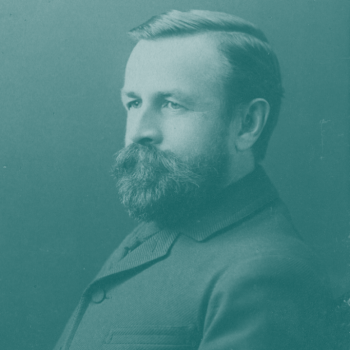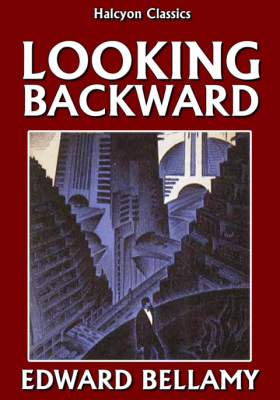The global network of communitarian unions concept of “common” wealth collaborative provisioning, formed by the values, mission and vision of “Rich By Association” echoes themes found in Edward Bellamy’s late 19th-century works, “Looking Backward” (1888) and its sequel “Equality” (1897). Both share a focus on communal access to resources and the collective upliftment of society through shared economic systems.

Edward Bellamy’s 19th-century vision of a cooperative society—where material security is no longer a personal scramble, but a communal function continues to echo through the evolving principles and practices of the Communitarian Union. His dream of an ethical economy, governed by solidarity rather than self-interest, now takes on concrete form through the network of communitarian associates commitment to ‘Common’ Wealth Shared Provisioning underpinned by Participatory Competency-Based Governance.
These principles are not theoretical aspirations. They serve as living architecture for a global network of communitarian unions building a shared economy from the ground up – guided by Love-in-Action, ecological stewardship, and evolved relational contracts. The following three reflections outline how Bellamy’s legacy manifests in our daily lives, shaping a post-capitalist culture, a cooperative ethos, and an intentional eco-social economy.
From Competition to Coordination
Bellamy’s Legacy in Post-Capitalist Practice
The Communitarian Union’s emerging network of Right Livelihood Eco-social Communal Unions accords a living form to Edward Bellamy’s vision of replacing the isolating scramble for survival with shared systems of material security. Through the implementation of planned production and distribution – commonly known within communitarian circles as “Rich By Association, ‘Common’ Wealth Shared Provisioning, wealth or more aptly stated as “material security” is no longer pursued as an exclusive personal reserve; giving way to relational resources that generate, hold, and provide access to provisions that support life and liberty via participatory, competence-based governance.
This transition marks a deliberate break from capitalist norms. Rather than managing scarcity through profit-driven markets, communal unions coordinate abundance through collective care rooted in ecological responsibility. Associates contribute according to capacity and receive according to need, with provisioning decisions made in context founded on grounded relationships formed by ongoing participation, mutual accountability, and the trust built in Deep Union.
Bellamy envisioned societies transformed through the cultivation of moral integrity – where social and economic justice arises not from charity or welfare, but through organized systems of production and distribution that ensure a guaranteed livelihood for all.
Today, that vision takes shape as a post-capitalist reality: an eco-social foundation for living economies grounded in trust built through participatory governance, sufficiency ensured by shared provisioning of life’s essentials, and regenerative cooperation expressed through coordinated labor, ecological stewardship, and mutual care embedded in everyday collaborative routines and cooperative associations.
Edward Bellamy’s utopian classic envisions a society where material abundance is distributed as common inheritance, not individual conquest. Bellamy introduces a world where goods, labor, and care circulate as common wealth, managed collectively to ensure universal dignity and provision. Gone are banks and billionaires – replaced by an economy of shared stewardship, international solidarity, and a moral commitment to collective flourishing.
Bellamy’s Vision Reimagined
Creating the Culture of Cooperation
The Communitarian Union reimagines Bellamy’s cooperative ideal as not merely structural, but cultural. Through creating and participating in Rich By Association ‘Common’ Wealth Shared Provisioning, we create a living culture where provisioning is woven into relational life internalized through mutual care rather than externalized through market exchange.
Within the communitarian union network of communal unions, wealth is not owned or earned in isolation. It flows instead through a network of shared governance and daily cooperation. Associates don’t compete for access; rather they coordinate their needs, capacities, and contributions in service to each other, resulting in provisioning becoming a natural expression of relational integrity and practical liberated love.
This cultural foundation supports more than survival. It fosters dignity, restraint, and belonging. What Bellamy once described as a “rational moral order” becomes a shared lifestyle of conscious interdependence, where the values of respect, mutuality, and ecological stewardship are brought to functional fruition.
Designing The Future
Bellamy’s Economic Vision in Practice
Bellamy dreamed of an economy governed not by fear and competition, but by foresight and fairness. In the Communitarian Union, this dream becomes infrastructure. Through Participatory Competency-Based Governance, decisions about resource flow are made by those directly affected, guided by lived experience and collective skill.
Common Wealth Shared Provisioning grounds this system in practical care—meeting real needs in proportion to actual conditions, not ideological “equality.” Associates receive not what they are owed abstractly, but what is required concretely for life, contribution, and wellness.
By practicing intentional restraint, honoring seasonal and ecological limits in addition to staying responsive to the ever-changing dynamics of communal life, we avoid waste, prevent excess, and maintain balance. In this way, Bellamy’s moral vision becomes an intentional economy rooted in ecological realism and collective liberation, beyond the theory and rhetoric of idealism.
Building the heart of a just society through Universal education, Economic Cooperation & Coordinated Provisioning
Edward Bellamy’s Equality offers a deeper, more intimate portrait of the cooperative future first imagined in Looking Backward. Through reflections on justice, education, and social ethics, Bellamy reminds us that systems alone cannot guarantee equality—only a culture of shared care and conscious participation can.
Living the Change
FORGING PATHS TO REDEMPTIVE ECO-SOCIAL COLLABORATIVE UNIONS BEYOND CAPITALISM
Through these interwoven principles, the Communitarian Union carries forward Edward Bellamy’s vision beyond a distant ideal to construct it as a daily reality. ‘Common’ Wealth Shared Provisioning and Participatory Competency-Based Governance seed the transformation of material life from scarcity-based competition to sustainable sufficiency-based care.
We are not merely imagining a better world; we are hands-on building it from the ground up. Through the coordinated, need-based, and love-centered provisioning practices of a global network of communal unions, the future becomes not something hoped for, but something enacted, together as every day on the ground practical activism.


